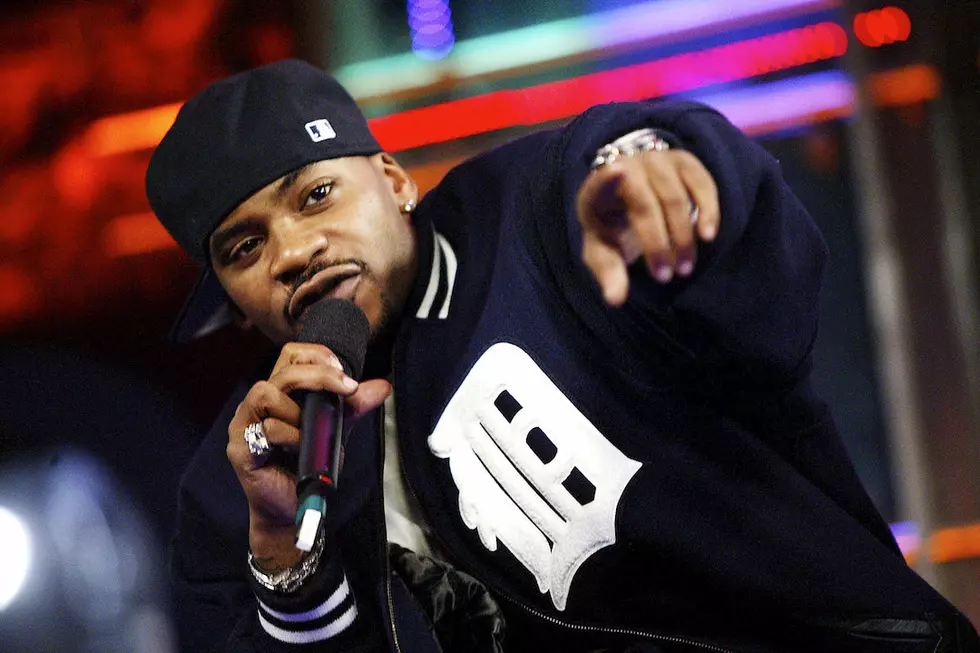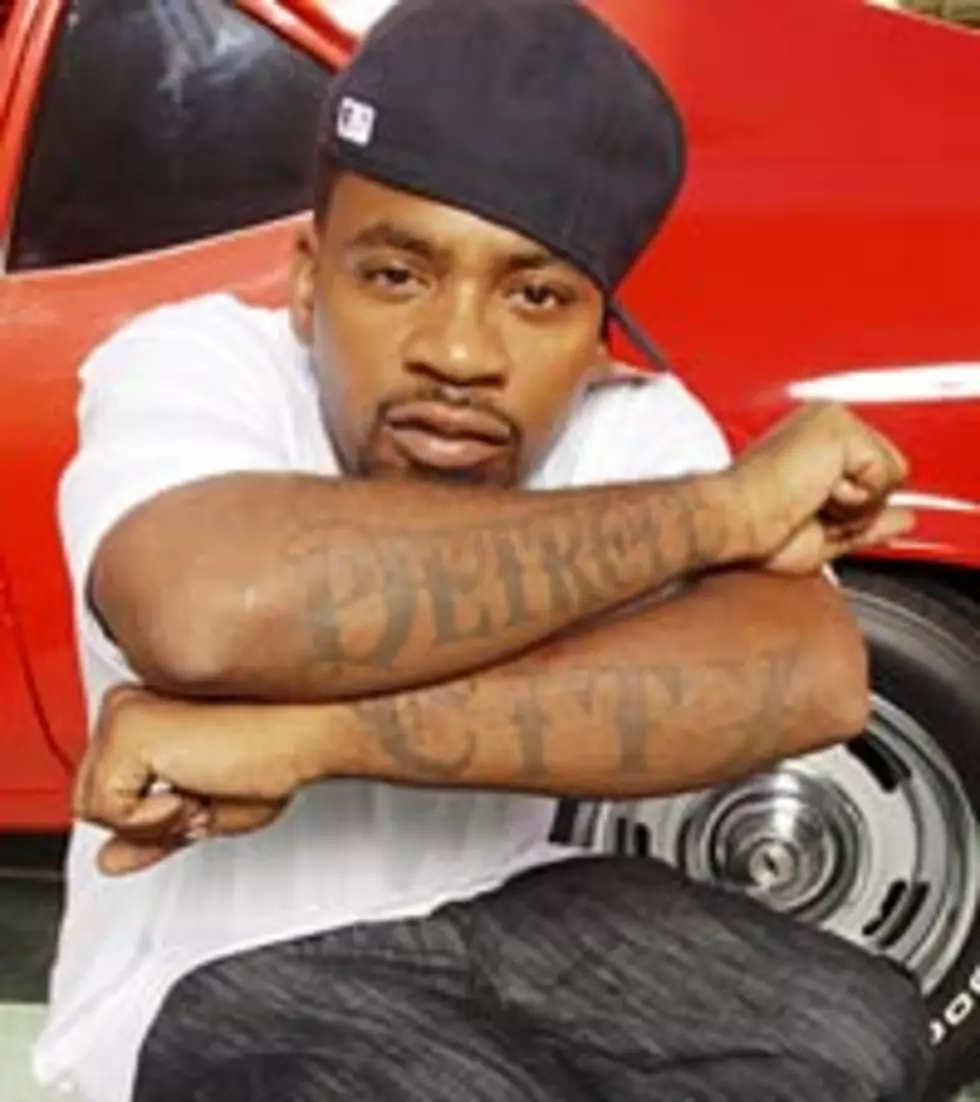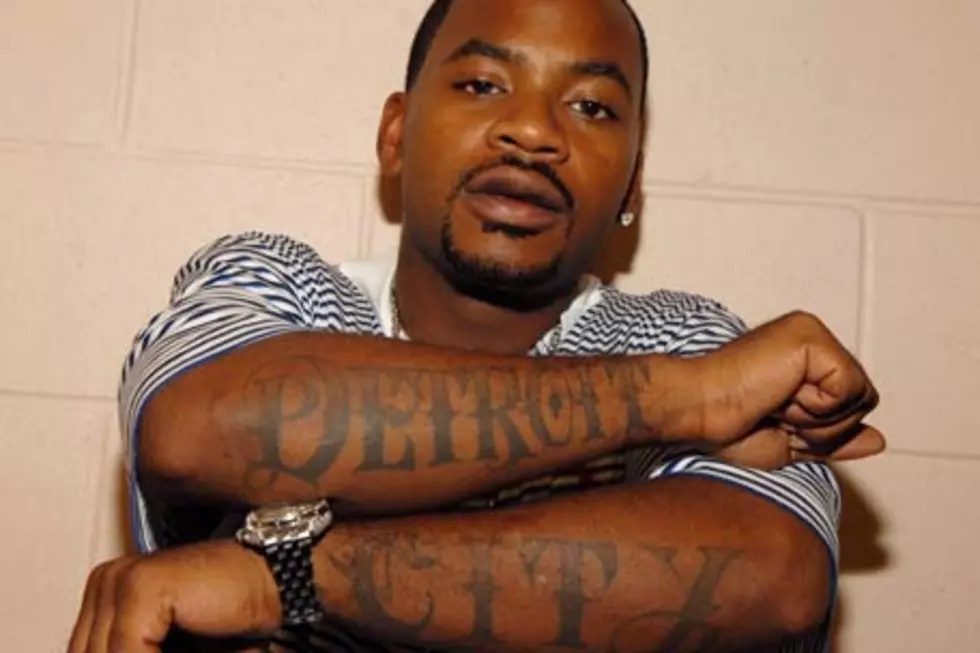
Obie Trice Recalls ‘Upset’ Jimmy Iovine, Talks Eminem Collabo
Getting shot in the head has a way of giving you new perspective. For Detroit rhymer Obie Trice, that harrowing night on Dec. 31, 2005, changed everything. The former Eminem protégé had experienced the spoils of rap stardom out the gate with his 2003 debut, 'Cheers,' a factor that Trice admits had a negative effect on his already mammoth ego. He showed up late to interviews, clashed with Interscope suits and openly beefed with local Motown rivals. "I was really doing too much," Trice tells The BoomBox of his high times on Shady Records-Interscope. "I needed to be taught a lesson." And that lesson was soberingly clear: respect the game.
Yet the run-up to his third album, 'Bottoms Up,' due Jan. 17, was darkened further by the untimely death of his mother, who succumbed to cancer this past summer. When you've dealt with such knock-down tragedy, you can forgive Trice for being overtly passionate when he talks about his newfound independence. Having split from the powerful Interscope machine, the tattooed rapper sat down with The BoomBox to discuss his new studio release, his beef with major labels, why Slim Shady is still the best and why he decided to start his own imprint.
What is it like operating independently with your own label, Black Market Entertainment, after being a part of such a commercially successful, mainstream behemoth like Shady-Interscope?
It has its ups and downs; its positives and negatives. I've had to spend money that I wouldn't necessarily have to come out of my pocket on when I was dealing with Interscope. But it's better because you have more control of the moves that you are making and the music that you want to put out. There's a lot of different things going on at Black Market. We have songs that we want to be released. We have songs that we want to be heard... and now we can do that. That doesn't happen on a major company where they want to put out the joints that they feel necessary for you to sell albums.
The single 'Battle Cry' from 'Bottoms Up' really sounds like a cathartic statement for you. You seem to be giving a middle finger to the music industry and some of your doubters. Do you relish the role of being an underdog?
Yeah. That's the statement I was making on 'Battle Cry.' There's a lot of negativity that influenced my time with me and Eminem and Interscope. A lot of people just feel like I can't be successful without Interscope. They were saying that I was nothing without Eminem. But I created myself. Eminem came and found me as an artist after hearing my music when I was selling music out the trunk. Eminem is my homie, and he still is to this day. We were a great team together when we made music, but I was also his protégé. That's why I feel like 'Battle Cry' is a necessity because of everything that I have heard from my critics.
Is it an angry song?
Not really. It's a song that felt good to get out. I do my best work when I don't force my music. 'Battle Cry' just came to me. I had to address different issues. It grabbed me in that direction. That's how the actual song made me feel. And how did I fly? I felt like, "I'm here!"
Before we get into more of the new album, let's get into what you described as the negativity at Interscope. You mentioned how close you still are with Eminem, yet your relationship with Interscope and Jimmy Iovine is a different matter, correct?
Well, at that time when I was at Interscope, I had missed a Big Boy [radio] interview and that was a huge thing. And Jimmy Iovine was really upset with me for that. I used to be at Jimmy Iovine's house hanging out with him and watching movies. We would be in the theater room and Mary J. Blige would be two rows behind me. So the relationship was there. Jimmy just felt like I didn't want it as bad as I should have. But that wasn't the case. I was just young when I came into the game. But I understand it now. This is a business.
Do you blame the lackluster album sales of your second album, 'Second Round's On Me,' on Interscope?
Sure. I believe that had a lot to do with Jimmy being upset with me for the kind of moves I was making. I didn't do as well as my first record, 'Cheers,' because of the lack of promotion. There are a lot of things to this game. You live and you learn. You understand and you grow and you hope that the people that supported you in the past don't forget about you.
Can you talk about some of the serious things you have been going through during your time away from being shot in the head to your mom passing away after battling cancer?
It's definitely been a tremendous road. There were financial issues with the IRS., getting shot in the head and facing death. And then you got my homie Proof getting shot in much the same way in back of the head. You got my separation with Interscope. You have all these personal issues, but the toughest was my mother's death. It's definitely been a hell of a road. But I love hip-hop. Last night, I was hanging out with Tony Touch in New York. I hung out with DJ Finesse, who was killing the old school. I ran into Greg Nice [from Nice & Smooth], I ran into Grand Puba Maxwell, all of these cats I looked up to. I needed these guys when I was going through all the stuff that was happening. This is what I do, to be able to put that energy into hip-hop music has been very important for me. It's a gift.
Did being shot in the head change your life personally and artistically?
Yes and no when it comes to my music. I just do what I do. But in my everyday life, I changed. I was out of control, reckless. I had a platinum first album out, so it was one of those things where I felt untouchable, unstoppable. God put me in my place and put me in check. He told me, "Hey, you don't have to be here." But at the same time, I don't take any s--- from anyone. I don't give a f--- who you are. But I am definitely more humble. I feel blessed. I'm a totally different individual.
Being from Detroit, we all know how diverse the Midwest can be when it comes to hip-hop. Who were you listening to coming up?
I was really into the Notorious B.I.G. I loved Ice Cube, MC Lyte, Big Daddy Kane, Common, Wu-Tang, and later on it was Nas and Hov [Jay-Z]. I got a long list from Queen Latifah to Scarface. I'm in my early 30s. That was the era that I came up in. I've done songs with some of the greatest artists. I respect the game.
Both Eminem and Dr. Dre appear on 'Bottoms Up.' How easy was it to work with two individuals that have had such a profound impact on your career?
It was great, man. Having Dre and Em on my album? Those are my guys, my dudes. You have to be under a rock for years to not know who Dre is [laughs]. Just to have him tell me, "Obie, I'm with you, man. I got whatever you need." That's a beautiful thing. You have to understand, I was the first, new artist that Dr. Dre ever rapped with. This was my first album and Dre was spitting on it. And Eminem is one of the greatest to ever do it. And we are still cool. A lot of people forget the realness behind everything. There's a lot of fakeness in the game. Just having Em and Dre on 'Bottoms Up' is more than a good look. I'm proud and I'm happy.
Watch Obie Trice's 'Got Some Teeth'
Follow @theboombox on Twitter | Like Us on Facebook | Sign Up for Newsletter
Download Obie Trice Songs | Buy Obie Trice Albums
More From TheBoombox
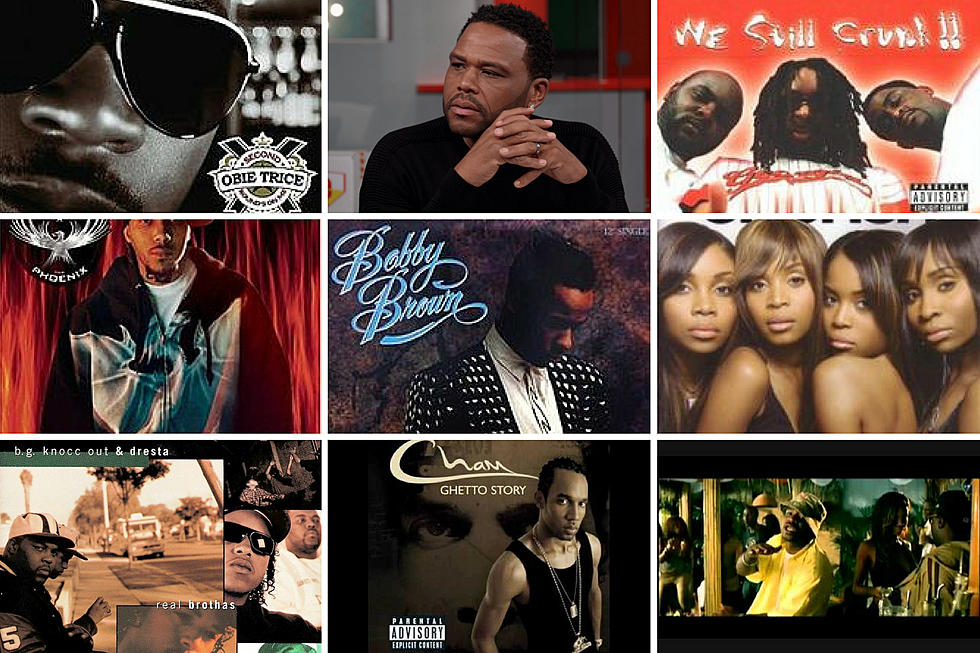
![Obie Trice Gets at New Rappers on ‘Truth 2 Power’ [LISTEN]](http://townsquare.media/site/625/files/2017/08/Obie-Trice.png?w=980&q=75)
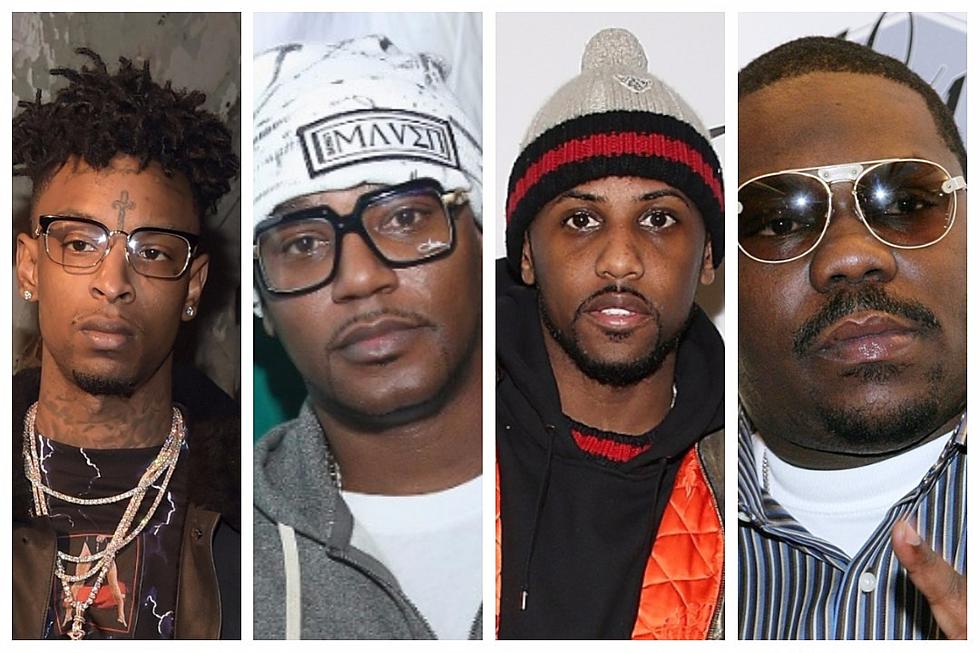
![Big Boi Freestyle from 2004 Surfaces Via Tim Westwood [LISTEN]](http://townsquare.media/site/625/files/2016/07/big-boi.jpg?w=980&q=75)
